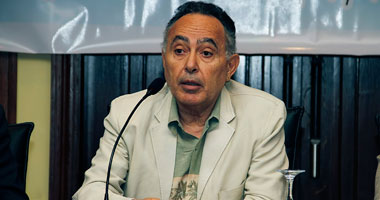Bahey El Din Hassan, Cairo Institute for Human Rights Studies (CIHRS) Director, stated that there is no qualitative difference between the position of terrorist groups and that of some Arab governments regarding freedom of expression; the difference is only quantitative, but both stem from the same logic that does not visualize coexisting with a minimum margin of freedom of expression.
Hassan made this statement in the wake of a meeting held on 13 January in Geneva with Zaid Ra’ad, United Nations High Commissioner for Human Rights and a delegation of the International Federation for Human Rights headed by Karim Haji, and including Elham Seoudi (Libya), Amena Bo Ayyash (Morocco), Shaawan Jabarin (Palestine) and Khadija al-Sharif (Tunisia).
Mr. Bahey explained that in the same week that witnessed the killing by a terrorist group of 10 French journalists at the headquarters of the “Charlie Hebdo” satirical newspaper in Paris, based on the allegation of “offending Islam”, Saudi Arabia punished blogger Raef Badawi accused of “offending Islam” with 50 lashes administered in public as the first round of a punishment of one thousand lashes and ten year-imprisonment, then a further travel ban for ten years if he survives! He was also fined 1 million riyals (approx. $260, 000). During the same week, Egyptian blogger Kareem Ashraf received a three-year sentence after being charged with the same crime of “offending Islam”! Everybody seems to be invoking the same extremist religious discourse.
The meeting with the High Commissioner for Human Rights broached the deplorable human rights situation in the Arab world in general, and in Egypt, Palestine and Bahrain in particular. The meeting also addressed growing threats against the rights of individuals and peoples as a result of escalating terrorist attacks, and shed light on the close interdependence between authoritarian regime practices which drive youth – from the ranks of either Islamists or secularists – toward extremism and the rejection of peaceful political action on the one hand, and the rapid growth of terrorist organizations on the other. The meeting stopped at length to contemplate the harassment of human rights defenders in some Arab countries, especially Egypt and Bahrain, through for instance politicized trials, fabricated accusations, imprisonment, travel bans, police restrictions on the exercise of human rights defense activities and on bank accounts of organizations, as well as death threats and arrests.
Share this Post

